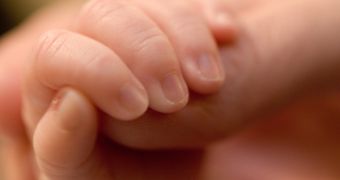Following a recent British breakthrough screening procedure, resulting in a 29 year-old woman giving birth to a healthy young girl who was completely without the breast cancer-generating gene BRCA 1, dispute over the ethics and the implications of using this selective technique on a large scale has escalated, with proponents and critics bringing equally strong arguments into discussion. While some say that pre-implantation genetic diagnosis (PGD) should only be used in selected cases, others say that widespread use could help geneticists find ways of creating healthier human beings in the future.
In the UK woman's case, the couple decided to go through with PGD, selecting their to-be daughter from a batch of embryos just 3 days old. They were screened for the presence of the BRCA 1 gene, which is associated with an 80 percent chance of the offspring carrying breast cancer, and a 60 percent chance of them developing ovarian cancer over the course of their lives.
Breast Cancer Care clinical nurse specialist Kath McLachlan says that "There are many complex issues to take into account and the decision will finally come down to an individual's personal ethics."
"If misapplied, [PGD] would exacerbate existing inequalities and reinforce existing modes of discrimination. The development and commercial marketing of human genetic modification would likely spark a techno-eugenic rat-race. Even parents opposed to manipulating their children's genes would feel compelled to participate in this race, lest their offspring be left behind," adds Center for Genetics and Society executive director, Richard Hayes.
Opponents also fear that some parents might try to select their embryos using criteria such as possible IQ, athletic abilities, gender or other such features, which would prompt others to do the same. The resulting babies could also be aware of the fact that they are better than others, and could take advantage of this, making the other children feel miserable about themselves.
On the other hand, those in favor of widespread use of this technique say that the knowledge geneticists gain with each procedure could be used to benefit the entirety of mankind, in that virtually all babies born under the system could benefit from an enduring health, and could lack major genetic risk factors, which cause severe diseases, and even death. "Why not improve our genome?" asks Ronald M. Green, an ethics professor at Dartmouth College in the UK.

 14 DAY TRIAL //
14 DAY TRIAL //